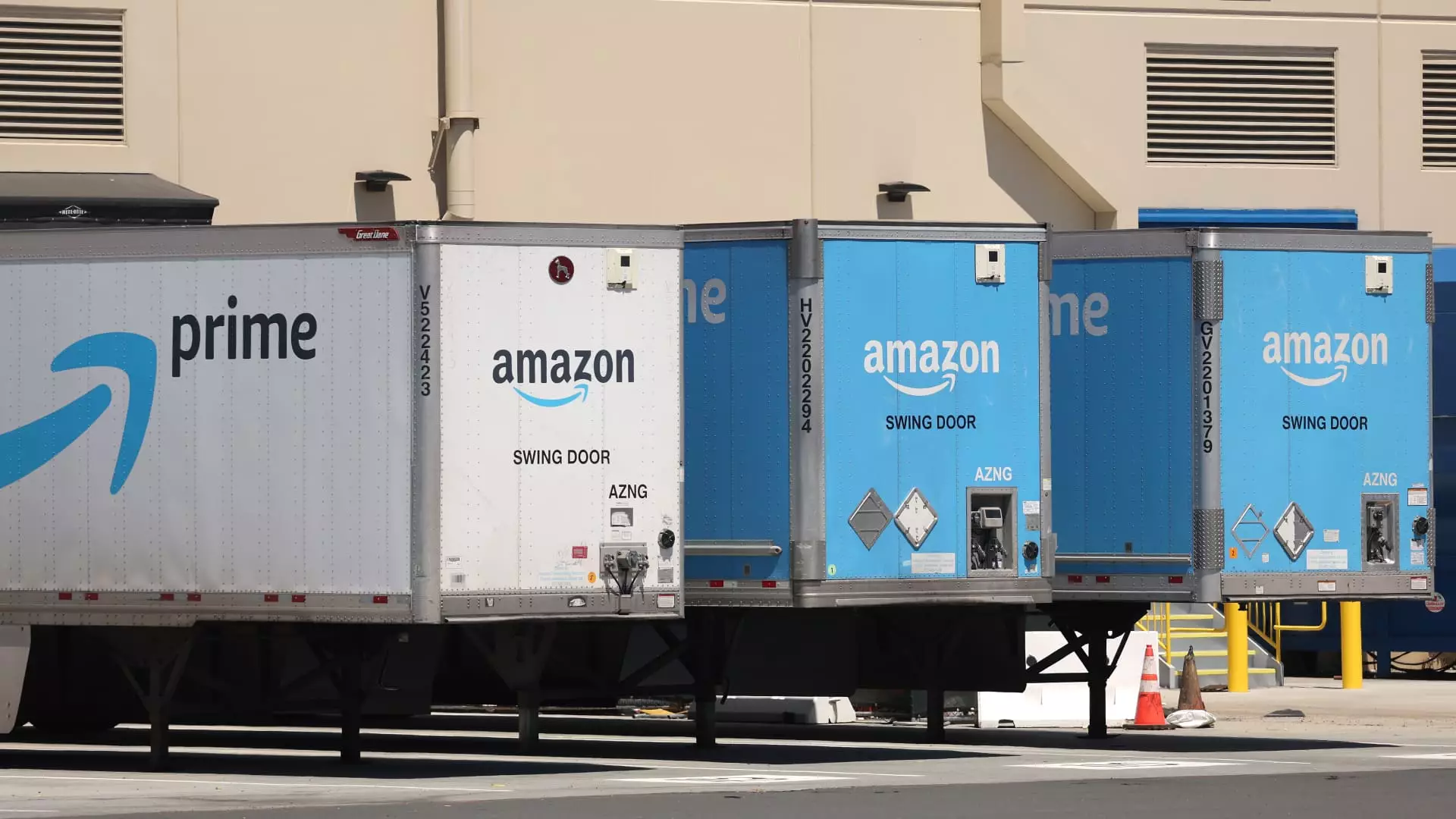In a significant crackdown this week, the U.S. Department of Justice (DOJ) revealed charges against members of an Armenian crime ring, who allegedly stole more than $83 million in goods from Amazon. This scheme spanned several regular truck routes, wherein the perpetrators masqueraded as legitimate transporters to pilfer valuable cargo en route to Amazon’s warehouse hubs. This kind of audacious criminality reflects not just the perilous landscape of contemporary commerce but also the vulnerabilities within major corporations’ logistics systems. Each year, cargo theft is estimated to cost retailers in the United States upwards of $1 billion, leaving a devastating impact on profits and supply chains.
The DOJ’s allegations paint a disturbing picture: since at least 2021, members of this organized crime faction executed a meticulously planned operation across California, stealing entire truckloads of high-demand products, including consumer electronics and kitchen appliances. This raises critical questions about the safeguards that companies like Amazon have in place and the ethics surrounding third-party logistics in an era increasingly dominated by e-commerce.
Behind the Facade of Innocence
According to the DOJ complaint, the crime network operated through four transport companies—AK Transportation, NBA Holdings, Belman Transport, and Markos Transportation—all of which facilitated the deceptive rerouting and theft of merchandise. Each transport driver was supposed to pick up loads from manufacturers, only to divert their routes, helping themselves to a share of treasures found within their trucks. The level of planning and boldness demonstrates a disturbing trend where crime is disguised under the very operation processes designed to deliver goods efficiently to consumers.
The clever manipulation of Amazon’s Relay app, which enables truckers to secure freight routes, highlights how vulnerabilities in existing logistics platforms can be exploited. The complexity of monitoring countless deliveries creates openings for bad actors, significantly complicating efforts to protect the integrity of the supply chain. While Amazon has instituted measures to combat fraudulent activities, the persistence and growth of cargo theft suggests that these efforts are merely the tip of the iceberg.
Amazon’s Response: A Comprehensive Approach
In light of these incidents, Amazon has been forced to reassess and ramp up their investigatory efforts to crack down on fraudulent activities in their distribution chain. Their internal teams collaborated with the DOJ to provide vital intelligence regarding the thefts, leveraging data analytics and information-sharing platforms to identify suspicious patterns among third-party sellers. CNBC reported that Amazon had previously suspended multiple merchant accounts linked to the sale of stolen goods, showcasing the complexities retailers face in maintaining ethical integrity while navigating an increasingly murky marketplace.
Yet, this situation also highlights the plight of unwitting third-party sellers who find themselves caught in the crossfire, claiming that they did not know their products were illicitly obtained. The dilemma begs the question: how can companies safeguard their vendor relationships without penalizing innocent participants? Balancing security measures with the survival of small businesses remains an ongoing challenge and speaks to broader issues about fairness, responsibility, and transparency within e-commerce.
The Criminal Web: Implications Beyond Cargo Theft
What intensifies the gravity of these charges is the fact that the alleged members of the Armenian organized crime ring are linked to even darker aspects of criminality, including attempted murder, kidnapping, and health-care fraud. Such connections unearth the intricate networks operating in parallel to legitimate commerce, indicating that the dangers of cargo theft extend far beyond financial loss. When organizations engage in a complex mixture of major crimes, the repercussions reverberate through the communities that they affect, amplifying the sense of lawlessness and insecurity.
The DOJ’s decisive action against this crime syndicate serves as a potent reminder of the scale at which criminal enterprises operate. They capitalize on the failings of larger systems, positioning themselves as significant threats to public safety. For many individuals involved in the transport and distribution sectors, the shadow of organized crime poses daily risks, eclipsing the sense of stability that commerce hopes to achieve.
As the legal proceedings unfold, the involvement of multiple jurisdictions—including potential court appearances from the accused across various locations—illuminates the far-reaching implications of cargo theft. This complex web of crime, technology, and commerce challenges law enforcement and regulatory bodies to continue evolving their tactics and approaches to combat crime in an increasingly digital and interconnected landscape.


Leave a Reply